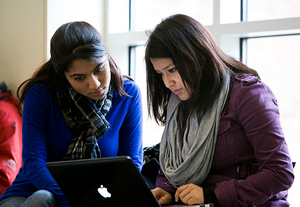Melbourne, May 22: Australia is rebounding as a preferred study destination for Indian students with latest official data showing more than 17 per cent jump in their enrolments in the country's education institutions this year.

A total of 35,671 students across all sectors including higher education were enrolled from India during the first three months this year as compared to 30,372 registered during similar period last year, according to official data.
India remained the second largest supplier of students for Australian education institutions accounting for 9.6 per cent of total sector as against China which stood at the top grabbing 30 per cent of the market share.
Victoria recorded the highest number of enrolments at 14,511 from India as compared to New South Wales which only received 6,430 enrolments during January-March this year.
In the sector of Vocational Education and Training (VET), India had the largest share of total enrolments at 19 per cent and of total commencements 16.2 per cent during the period.
Enrolments in VET sector from India stood at 15,296 where as higher education enrolments stood at 17,806 during first three months this year
The number of Indian students in Australia had sharply declined in recent years following violent attacks on them in the country.
The attacks dented Australia's image as a safe destination for foreign students
Australian High Commissioner to India Patrick Suckling had earlier said, "an increasing number of Indian students were being drawn to Australia's world class higher education system."
"Just as important, they show that far fewer Indian students are being refused visas, and that recent changes designed to enhance the competitiveness and quality of Australia's international education sector are working," he said.
"Australia welcomes Indian students, who make a vital contribution to both academic life and the communities in which they live," he had said.
The student visa programme quarterly report also demonstrates that Australian government officials were dealing effectively with increased demand.
"Seventy-five per cent of offshore applications by Indians were processed within 29 days, and 50 per cent were processed within 20 days," Suckling said.










Comments
Add new comment